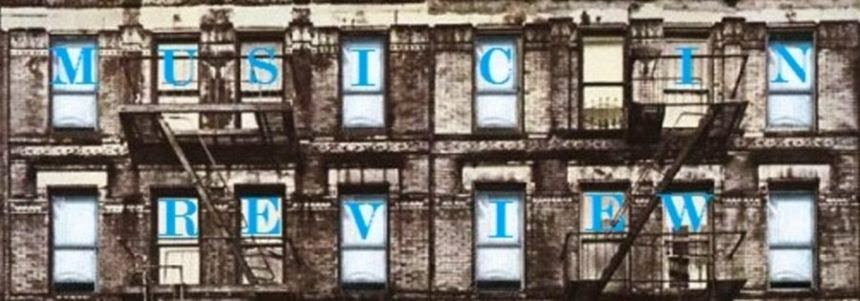 |
| Natalia Yanchak and Murray Lightburn of The Dears |
This year, 2015, The Dears’ newest album “Times Infinity Volume One” is set to be released, but no firm date has yet been given. However it is their third studio album, the 2006, “Gang of Losers” that I want to talk about, as this was the album that caught my attention. “Gang of Losers” is not only a pretty damn good album, but is also a delightful name for an album, the touch of self loathing humor goes way beyond establishing The Dears not only as humble but also humours.
There are very humanist and hopefully themes throughout The Dears’ body of work but perhaps their message of peace and love is personified more so on “Gang of Losers” then any other album of theirs; I think so anyway. There are great songs about love persevering, prevailing over all things and bringing all of us together like “Hate Then Love.” This is not to say they are completely optimistic, there are songs that divulge into sadness and sometimes even hopelessness, the track “Fear Made the World Go ‘Round,” is particularly somber, even then there is a silver lining at the end “we’ll be o.k.”
It is all these things that make me love the song “Ballad of Human Kindness.” The lyrics speak about people struggling with poverty and homelessness and how Murray relates too, feels for, and, more or less, tortures himself being unable to do more.
I love the lyrics and the way Murray sings them. Every verse stands out to me:
“Well I thought that,
We all cared about peace,
And I thought that,
We'd all cry about love and loss,
And I thought that,
We were somehow holding on,
But I'm just standing here.”
It is very easy to turn a blind eye to the suffering of others, especially when there is a geographical or social distance from those struggling and yourself. However we have reached a point in global cooperation and communication that makes it harder and harder to be ignorant about what other people are going through, yet still we are profoundly apathetic.
But there is another challenge Murray wisely identifies:
“Every time I think about,
What I can do,
It just slips away,
And every time I think that,
We can make things work,
Well it just slips away,
And I turn on the news,
And there's always some dude,
Who's relentlessly bringing me down,
Telling me how,
There are too many,
Dark people out there,
Who'll never be found.
Well...”
It would be equally ignorant to turn a blind eye to all the efforts made by all the charities and individuals trying to make things better, but for a variety of reasons, as a species, we continue to be unable to conquer the problems of poverty and homelessness. Then there is the news, the centre of our social cultures, focusing and unrelentingly dwelling on our failures and perhaps even convincing us that things are hopeless.
Lastly, the final verse:
“And I can't believe the,
Vast amounts of people,
Living on the streets,
And I can't believe that,
I was almost one of them,
And I almost died,
And I can't believe that,
I haven't lifted a hand,
And I'm just standing here.
Well I'm gonna change,
I’m gonna change....”
I suspect everyone will relate on some level with personal experience or exposure to the social economical issues being described by Murray, and I suspect certain levels of sadness, fear, guilt, and other mixes of emotions will be invoked, but for me it reminds me of so many things. It reminds of the documentary I helped work on about the homeless. It reminds of my friends who were homeless and those who still are. It also reminds me just how close I came, multiple times, to being unable to pay rent, and while I am confident my parents or brothers would have bailed me out if a worst case scenario had arisen, I often thought about what could have happened if I was not as determined and financial careful as I was, it is not an exaggeration to say that I was almost one of them, and I often feel that I haven’t lifted a hand, and I would not know what or how to help even if I had the time and resources to make a meaningful difference, and I’m just standing here....
The chorus is this line repeated:
“No one should have to,
Live all of their life on their own.”
 |
| "Love" a good message. |
What I said at the beginning of this review was that The Dears, and notably Murray Lightburn, focus on themes of humanism and hopefulness, but they do not shy away from the very real struggle surrounding everything. It is equal parts optimistic and realistic, and I think that is why the message The Dears put forth is so much more charming and effective then other equally kind hearted and good natured artists. This is the difference between decent music and great music and “The Ballad of Human Kindness” is a great song.
- King of Braves


No comments:
Post a Comment